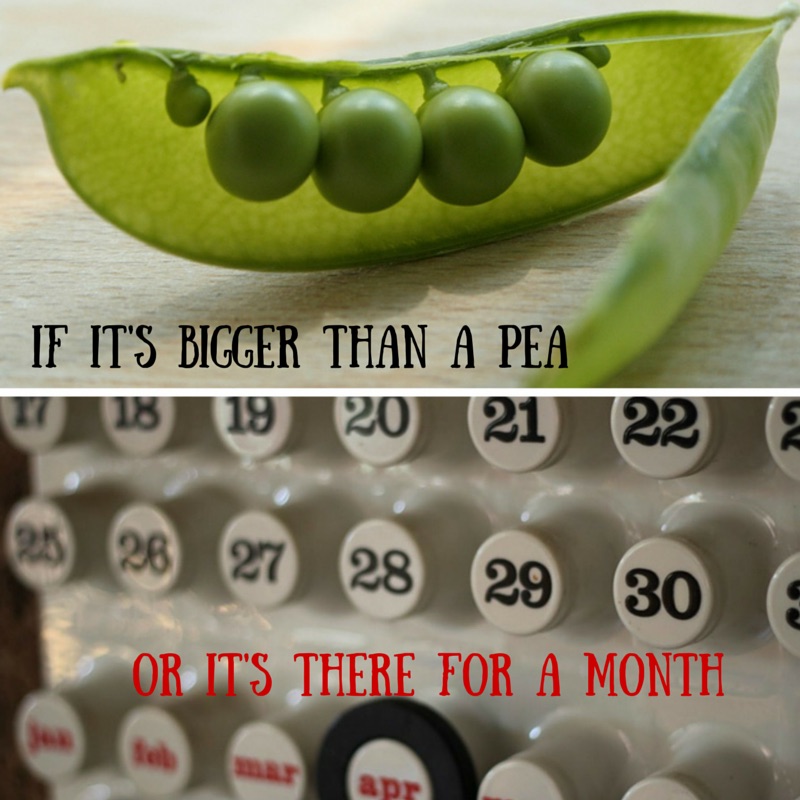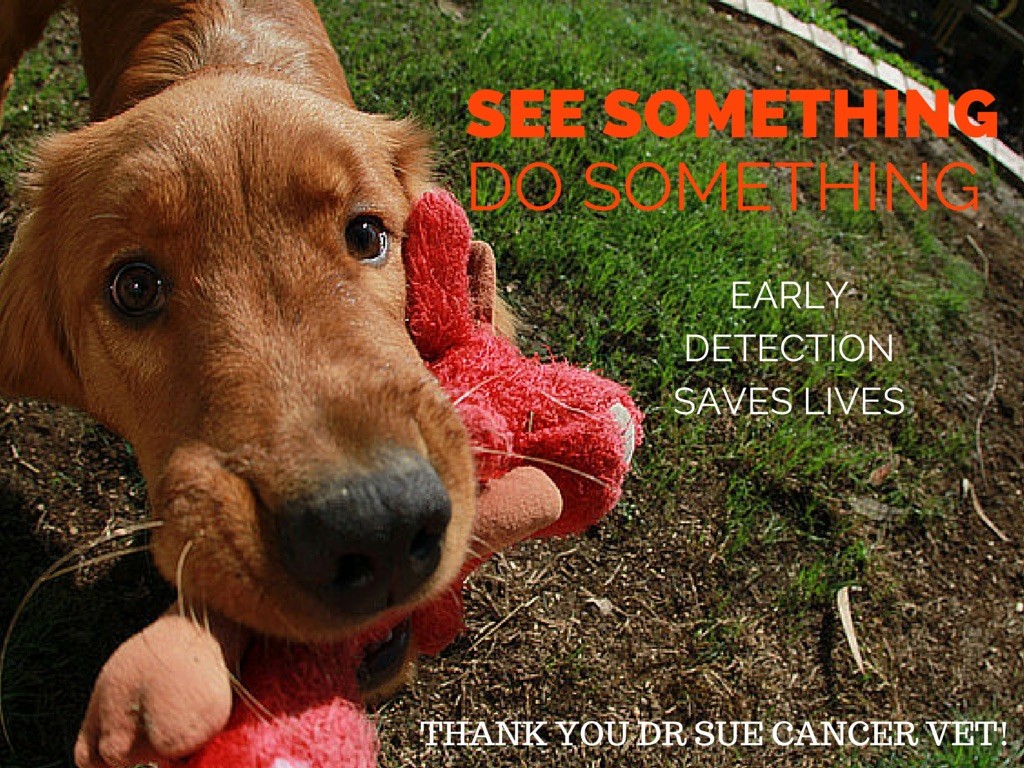As a veterinarian, I’ve seen lots of cancers: lymphoma. Melanoma. Osteosarcoma. Hemangiosarcoma. Mast cell tumors. Wait, those are just my own dogs I’m talking about. When I factor in my clients, I think I’ve seen it all.
Dogs get cancer, at very high rates: about 50% of senior dogs die of it, if the statistics are to be believed. Why? Well, if you read overly simplified, graphics-intensive websites by people who really don’t know what they’re talking about, they will tell you that they know why cancer happens: GMOs. Preservatives. Kibble. Microwaves.
I wish it were that simple. It’s not. And the reason that line of thought drives me nuts is that it has sent so many lovely people into spirals of depression when their dog dies and someone on the internet convinced them it was their fault because they, the owner, did something terrible like feed their dog kibble or use a plastic bowl. People end up in therapy because of things like this.
Cancer is not a singular diagnosis; the type and breath of neoplastic disease means there’s often little resemblance from case to case; a transmissible venereal tumor bears very little resemblance to a splenic hemangiosarcoma. If we could pinpoint cancer to one cause, we’d all be rich. And yet, with all this secret knowledge, overall cancer rates aren’t budging.
Because I love a breed known for having one of the highest rates of cancer (is it the fact that Golden Retriever owners feed worse food overall? Or is it genetics?) I watch Brody pretty closely. Knowing that 60% of Goldens get cancer in their lifetime, I spend a lot of time inspecting him for lumps. As we speak, the largest observational study of its kind is currently underway to help us better understand what’s going on. In the meantime, you do the best you can but truthfully, there’s not a whole lot of ability to predict and prevent cancer. Even for the people who home cook organic food (sorry. Do it because you want to, not because it will make your dog live forever.)
You can save money (and life expectancy) by doing some simple things:
Knowing he is an at-risk breed, I do what I can to try and keep Brody healthy. When he gained too much weight on his food, I got the weight off. Obesity is thought to be a risk factor for cancer. Just as importantly, I get his bumps evaluated and when I find one, I don’t mess around.
The dog eats like a king; I give him the good stuff because I care about quality ingredients, though not enough to condemn people who can’t afford it. But even with his high end diets, at age 6, he’s on his second cancer. The first one, a melanoma, was excised two years ago and has yet to recur- because we caught it early. And now we have this: a little teeny ear lump.
I thought it was no big deal, but I got it evaluated anyway. See? We vets do it too. A lump is a lump is a lump. Until you get it microscopically evaluated, you just don’t know. I just got the call last week: it’s a mast cell tumor.
I’m thrilled we got this diagnosis
Am I thrilled Brody has a mast cell tumor? Of course not. They stink. Despite the fact that the visible mass is only half a centimeter, this type of tumor has tons of microscopic disease and is notorious for requiring huge surgical margins for a complete excision. For that little tiny tic-tac mass on his ear, he is very likely going to need to lose his entire pinna. (I’m getting a surgical consult this week.)
However, losing an ear is minor compared to where these things end up when people wait. You can lose an ear, but you can’t lose an entire head, for example. This is small beans compared to what lots of pets need to go through later in the game when masses grow. If we get a complete excision, this should be a closed case. And guess what? It’s so much cheaper than tons of radiation and chemo and massive surgeries. Win-win for the dog and your wallet. I’m not happy he has it, but I’m happy I know now, early.
Why wait? Aspirate that shizz!!
What one thing can you do to guarantee your pet won’t get cancer? There isn’t one.
What you can do is maximize their chances of survival and recovery: Don’t mess around. Dr. Sue Ettinger, veterinary oncologist and all-around brilliant person, has an initiative called Why Wait Aspirate that is as simple as can be: when a vet tells you that a lump is ok to “just watch”, what does that mean? When do you do more than watch it? Here’s Dr. Sue’s guidelines*:

ASPIRATE OR BIOPSY IT!
Easy peasy, no pun intended. Of all the things you can do to help your pet live long and live healthy, none matters more than early detection.
*Photo Credits: Calendar by Michael Hyde, Flickr Creative Commons license; Peas by Isabel Eyre, Flickr Creative Commons License







I’m so sorry that you’re facing another cancer. We lost our Crianza (who would have been 12 this week) to lymphoma four years ago. And a year later, my sister lost her lab Holden to pneumonia, which was probably brought because he was on prednisone after three surgeries for mast cell tumors. His were on his ribcage, so they were much more difficult to excise. I hope that Brody’s recovery from his surgery is like my beloved Relampago’s from a lipoma on his chest: uncomfortable for a few days and then totally forgot about it. He had the surgery when he was 10 and he lived to nearly 16.
Lymphoma is such a beast. 🙁 Of all the cancers to experience, I am grateful that this is one that can be easily visualized and completely removed. The ribcage area is much more challenging. 🙁
Oh, Brody. I’m so happy you caught it early, but sorry you guys have to go through this!
Me too. I’m going to have to rename him Picasso.
Love you and your blog! Hate to be a smartass, but if you are thinking of the artist who cut his ear off, that would be Van Gogh. Picasso is the one known for his abstracts. Sorry…
You’re right! Thank you! I’m getting my modern masters all confused.
Poor Brody (and you)! My golden Rory is 4 and in the Morris GRLS study. She was diagnosed with and had surgery for a mast cell tumor on her back leg last week. Small lump, big incision. We’re still waiting on the pathology report, but hoping for grade 1 and clear margins. Luckily, our vet did not mess around. She aspirated it as soon as I mentioned it and did surgery the day after we got the results. Good luck with Brody…hope he gets to keep some of his beautiful ear!
Big hugs to you!! And thank you for being in the study, you are part of something amazing.
Good catch Dr. V- I wish Brody a very speedy recovery and cancer free future! Hugs from Idaho. And when I get my next Golden, your ‘don’t wait aspirate’ comment will be my mantra!
It’s so true. Dr. Sue is the best, I’m really glad she is getting the word out.
Dr. V., does Brody (and the Kitty Who’s Name I Forgot) have Pet Insurance? Do Goldens have a higher rate or deductible because of the high incidence of cancer? None of our pets have had insurance, but a friend with a mixed-breed (who is 8 years old) is singing its praises because her dog recently had a cyst removed, and they paid 70% of the cost.
Some types have breed exclusions but not all. I don’t have insurance for the animals, but it’s a very good idea.
This blog is so fantastic. I just found it today and am loving your practical and hilarious point of view! I’ve been working in veterinary client service for 11 yrs and I want to post this entry in our lobby. Because, for real, bring your dog in, people. Lumps aren’t normal, get ’em aspirated! Also loved your Dr. Barbie entry about dog food. Nothing makes me want to press my head against the wall like a neurologic dog like Pet Food Dude! Thanks for writing!!!
Thank you!!